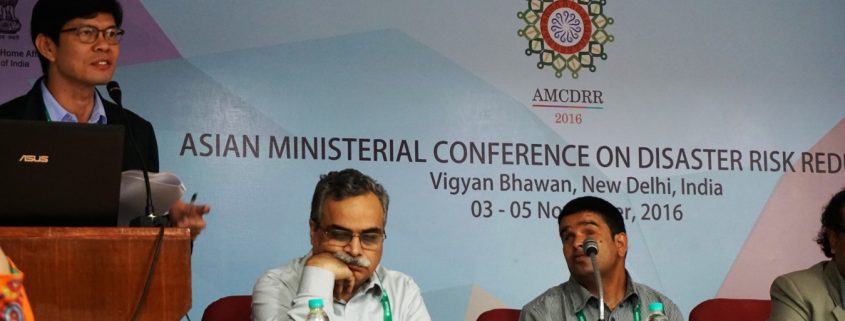A2D Project showcases initiatives in promoting Disability-inclusive DRR at the 7th Asian Ministerial Conference on Disaster Risk Reduction(AMCDRR)
A2D Project participated in the recently concluded 7th Asian Ministerial Conference on Disaster Risk Reduction held in New Delhi, India last November 3-5, 2016. With the theme “Risk Sensitive Development for Community Resilience”, AMCDRR 2016 focused on collaboration among Asian countries for the implementation of the Sendai Framework for Disaster Risk Reduction (2015-2030) towards making the Asia-Pacific Region more resilient to disasters. Aloysius Canete, Executive Director of A2D Project, shared lessons and recommendations to increase collaboration of persons with disabilities/ Disabled People’s Organizations (DPOs) with government in local risk sensitive development organized by the Disability-inclusive DRR Network (DiDRRN).
In his presentation, Canete highlighted the challenges encountered in working with government, civil society organizations, and disabled people’s organizations towards mainstreaming disability perspectives in disaster risk management and how A2D Project is exploring ways to address these challenges. “Persons with disabilities are often overlooked in disaster risk management (DRM) programs of the government. It is then very important to create an enabling environment through which government, civil society, and disabled people’s organizations can work together.” With this, Canete showcased the establishment of the Cebu Disability-inclusive DRR Network (Cebu DiDRRN) as a platform for such collaboration, facilitating partnership and dialogue among different stakeholders in the province of Cebu, in Central Philippines.
The Cebu DiDRRN, as a multistakeholder advocacy coalition participated actively by disabled people’s organizations, has produced promising practices in how to work with government and various DRM actors in the promotion of DiDRR. Since the launching of the network early in 2015, the Cebu DiDRRN has accomplished the following:
- Held the 1st Cebu Summit and Learning Event on Inclusive Disaster Risk Reduction;
- Organized DRR Info-fair Exhibition;
- Participated in the Sunset review of RA 10121 or the Philippine Disaster Risk Reduction and Management (DRRM) Act of 2010;
- Conducted Training of Trainers on “Lahat Handa” Manual for Disability-inclusive DRR for the Province of Cebu and;
- Conducted roadshows in commemoration of the International Day for Disaster Risk Reduction (IDDR).
“From this experience, we have shown how working collaboratively and partnering with government at different levels is a crucial component for advancing disability inclusion in DRR. Through this collaboration, for example, we have advocated for the integration of disability inclusion in developing local DRM budgets as well as for greater participation of persons with disabilities in DRM processes,” Canete added.
It is hoped that the lessons from A2D Project’s initiatives in DiDRR can contribute to strengthening the ongoing advocacy for strengthening disability inclusion in DRR programming in the country and in the region.
Over 3,000 participants attended the AMCDRR 2016 including ministers and senior government officials, bilateral and multilateral organizations, community-based organizations, technical experts, and private organizations from more than 40 countries. The major outcomes of the AMCDRR were the Asia Regional Plan for Implementation of the Sendai Framework for Disaster Risk Reduction, New Delhi declaration for strengthening political commitment in the region in DRR, as well as a series of action statements from various partners promoting an ‘all-of-society approach’ to building disaster resilience. A2D Project’s participation in the AMCDRR 2016 was supported by Arbeiter-Samariter-Bund (ASB), a German relief and social welfare organization engaged in a widerange of social service provision in Germany and abroad. Apart from Canete, the A2D Project delegation to the AMCDRR 2016 also included Ms. Marivic Codinera and Mr. Marvelous Jorda of Blind Association of Lapulapu City.





Leave a Reply
Want to join the discussion?Feel free to contribute!